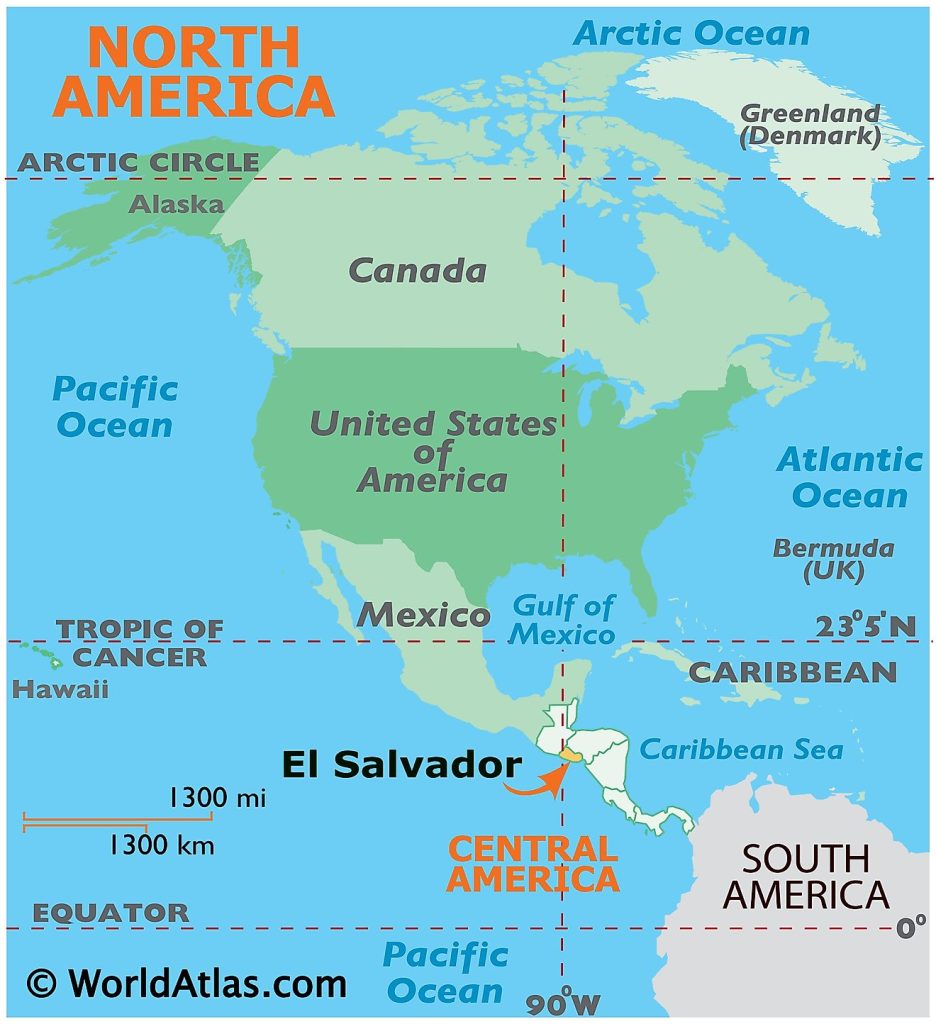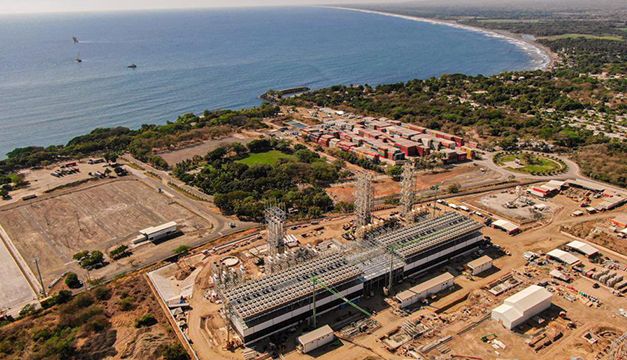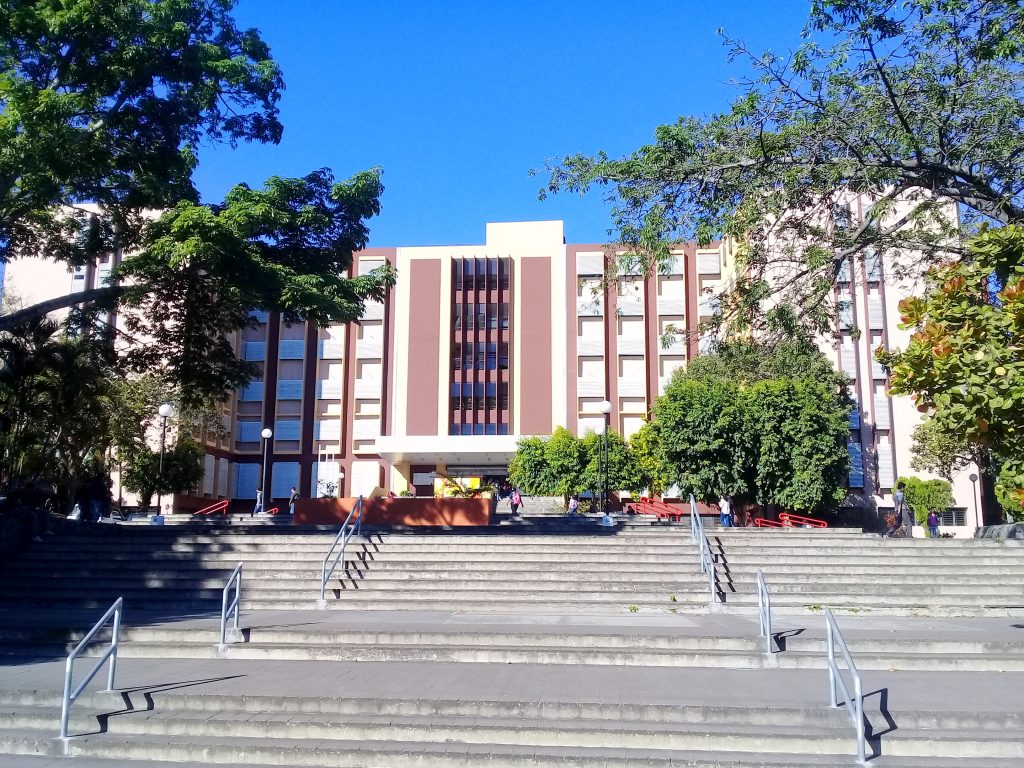Why invest in El Salvador? A strong Cryptocurrency Economy [2022 edition]
There are seven reasons that make El Salvador an attractive investment destination:
- Productive Labor Force
- Competitive Costs
- Monetary Stability
- Competitive Infrastructure
- Attractive Tax Incentives
- Preferential Access to International Markets
- Strategic Location
Monetary Stability
One of the most important policies implemented to open the country’s economy to world trade and investment is the adoption of the U.S. dollar as legal tender in 2001.
As a result, El Salvador has achieved single-digit inflation rates for over a decade, remaining below the average of the rest of the Latin American countries. Likewise, the elimination of foreign exchange risk has lowered real interest rates and provided greater certainty for investors. Companies that have invested in El Salvador benefit from lower financial and transaction costs.

Strategic Location
El Salvador has a privileged geographical location. Located at the heart of the Americas, it is a true commercial bridge between North and South America. El Salvador is also part of the bi-oceanic corridor linking Europe to Asia.
The geographical location of El Salvador allows traveling by air to major cities in North and South America in just a few hours (2-5 hours flight), with direct flights to over 33 destinations, and besides the International Airport of El Salvador is the regional hub for the Avianca airline. Freight transport is also facilitated by the country’s proximity to major shipping routes.
El Salvador has an incredible location for manufacturing companies that seek short response times to meet customer demands in North and South America. Likewise, the country’s modern port and airport infrastructure is determinant for companies to have efficient logistics operations.
In the area of international services (off-shoring and outsourcing), the location of El Salvador is key, as it shares the same time zone as the central United States (CST), six hours behind the Greenwich Mean Time ( GMT). This is strategic for the country to provide offshore business services and commercial aircraft maintenance.

Preferential Access to International Markets
Agreements with 42 countries in the Americas, Europe and Asia. Together they represent a potential market of 1.2 billion consumers. These agreements provide flexible rules of origin, and the elimination or major reductions in import tariffs.
Within the region, El Salvador has been a leader in negotiating trade agreements with strategic partners:
El Salvador is an export platform to reach major markets thanks to the broad network of trade
Attractive Tax Incentives
El Salvador is committed to promoting investment and developing long-term relationships with investors. The country’s solid legal framework provides attractive tax incentives and gives equal treatment to local and foreign investors.
Provides tax incentives to companies dedicated to providing services to foreign customers. To enjoy these benefits companies may establish in:
- Service Parks: Limited areas considered to be outside the national customs territory, where exporters of services are installed and operate under the benefits of this law .
- Service Centers: When a company – in an eligible activity specified in this law – for physical or technical reasons, is unable to operate inside a service park, it can be authorized to operate outside a Service Park, as a Service Center and enjoy all the benefits of this law.
Eligible activities:
- International Call Centers or Contact Centers
- Business Processing Outsourcing (BPO)
- Information Technologies
- Medical and Hospital Services
- Elderly and Convalescent Care
- Telemedicine
- Cinematography
- International Distribution
- International Logistics Operations
- Research and Development
- International Financial Services
- Technological Equipment Repair
- Maintenance and Repair of Airplanes
- Maintenance and Repair of Maritime Vessels
- Maintenance and Repair of Containers
- Specialized services to Aircrafts
Benefits:
- Full exemption from customs duties and other taxes on the import of machinery, equipment, tools, replacement parts, accessories, furniture and office equipment, and other goods required for the execution of the incentivized activity
- Total exemption from income tax, exclusively for income deriving from the incentivized activity during the period of operation in the country
- Total exemption from municipal taxes on company assets during the period of operation in the country
Competitive Infrastructure
The Global Competitiveness Report 2019 of the World Economic Forum places El Salvador among the nations with the best infrastructure in the region. In Central America, El Salvador ranks in the 1st place in road connectivity index and 2nd place in infrastructure.
El Salvador provides adequate infrastructure for trade facilitation that not only offers road connectivity but also constantly improves the cross-border trade experience. In 2018, the country ratified its incorporation to a customs union with Honduras and Guatemala. This union turns the crossing points into customs offices of transit allowing companies to mobilize merchandise and carry out business freely, nimbly and efficiently. Some of the benefits from this union are time reductions in logistics, operating cost reductions, productive chains integration, and joint production unification.

a) Highway Network
The country enjoys a modern and efficient road network that connects its main cities and offers a rapid and easy access to the rest of the region.
El Salvador main highways:
- Panamerican Highway
- Litoral (Coastal) Highway
- Longitudinal del Norte (North Longitudinal) Highway
The high connectivity and quality of El Salvador’s road infrastructure facilitate the transport of goods between production centers and ports.
b) Airports
El Salvador International Airport (AIES – SOARG) stands out as an important regional hub and top class maintenance center for commercial aircrafts.
El Salvador International Airport (AIES – SOARG) is one of the largest and most modern in the region. It operates as Avianca’s hub for Central America. Other airlines from South and North America, and Europe also operate in this airport.
c) Ports
El Salvador has a versatile port infrastructure able to respond to the needs of freight services effectively.
Main ports:
- Port Acajutla: Located in the western region of the country
- Port La Unión: Located in the eastern region of the country and showcases as one of the most important and modern in Central America.

Competitive Costs
El Salvador is one of the most attractive countries within the region to set up and operate a business. Over the past years, The Financial Times journal fDi Intelligence ranked El Salvador among the best cost-effective country in the region.
El Salvador’s Labor Code regulates employer-worker relations. Salvadoran legislation states that wages are determined freely, but cannot be lower than the minimum wage established by the National Wage Council, revised at least every three years.
|
Wage: |
Agro-Industry |
Industry |
Trade and Service |
Textile and Apparel Maquila |
||
|---|---|---|---|---|---|---|
|
Hour |
$0.85 |
$1.27 |
$1.27 |
$1.25 |
||
|
Day |
$6.78 |
$10.17 |
$10.17 |
$10.00 |
||
|
Month |
$203.44 |
$305.00 |
$305.00 |
$300.12 |
||
Telecommunications
El Salvador’s telecommunications market has multiple service providers offering a variety of voice and data services, as well as value-added solutions that meet the needs of their clients.
Electricity
El Salvador is one of the countries with the most competitive electricity rates in the region for industrial and commercial users.
Productive Labor
El Salvador’s labor force is composed of 3.0 million people, 55% of whom is 40 years or younger. Thus, it offers a highly productive labor force capable of developing new skills in a short period of time. The country’s labor force is qualified as ideal for manufacturing, agro-industrial and service activities. Furthermore, there is a growing population with higher education that can face the challenges of a modern and globalized economy.

“After a rigorous case study, we were convinced that El Salvador was the right place for economic reasons and its people with unprecedented energy and work ethic.”
Sagar Rajgopal
Co-founder and Chief Operating Director – BPO
Ubiquity Global Services, Offshore Business Services Sector
El Salvador’s Labor Code balances the protection and rights of workers with the flexibility that employers require to manage their businesses and create jobs.
El Salvador is characterized for having good employer-worker relationships. It has not been affected by significant disputes or strikes.
El Salvador has a good base of technicians and professionals ready to join the country’s productive sectors.
- 190.5 thousand students enrolled in technical and university careers
- 23.9 thousand technicians and professionals join the country’s labor force every year
- 24 universities
- 11 specialized institutes
- 6 technical institutes throughout the country
Technical Education
Investors can satisfy their demand of technicians through a pool of institutes specialized in technical education, such as:
- MEGATEC (Gradual Education Learning Model of Technical and Technological Education), with locations in Santa Ana, Cabañas, Zacatecoluca, La Unión, Chalatenango and Sonsonate
- Escuela Superior Franciscana Especializada / AGAPE (Specialized Superior Franciscan School)
- Escuela Especializada en Ingeniería / ITCA-FEPADE (Specialized Engineering School), with regional centers in Santa Ana and San Miguel
- Universidad Don Bosco / UDB (Don Bosco University)
- Escuela Nacional de Agricultura / ENA (National School for Agriculture)

Some of the technical careers available linked to FDI growth sectors, are: Aeronautical Maintenance, Agroindustry with Specialization in Fruits, Vegetables and Grains, Agronomy, Aquaculture, Biomedical, Civil Engineering, Customs and Logistics, Dental Surgery, Electronics, Food Processing and Preparation, Gastronomy, Global Logistics, Industrial Engineering, Mechanical Engineering, Medicine, Nursing, Prosthetics, Bracing and Supports, Port Management and Operation, Software Development, Tourism and Tourism Development and Management, among others.
On the job training
Companies that need to train their active workers can use the aid of the Salvadoran Institute for Professional Formation (INSAFORP, for its acronym in Spanish). An autonomous governmental agency that seeks to satisfy the needs for qualified human resources required by the country’s private sector. Multiple investors have found in INSAFORP an important tool for financing, partially or totally, their employees’ professional development.
Source: https://www.proesa.gob.sv/investment/why-invest-in-el-salvador/productive-labor








